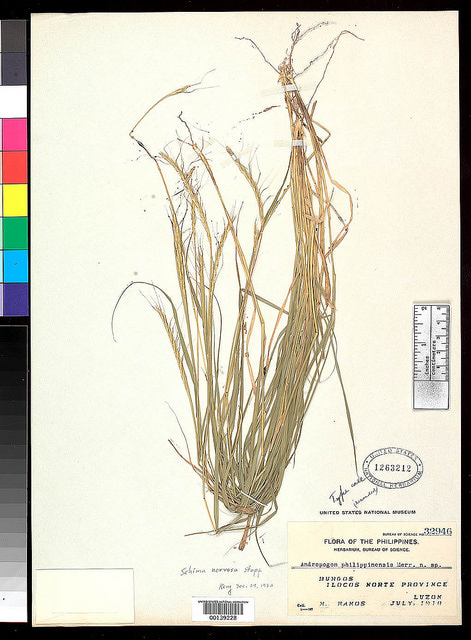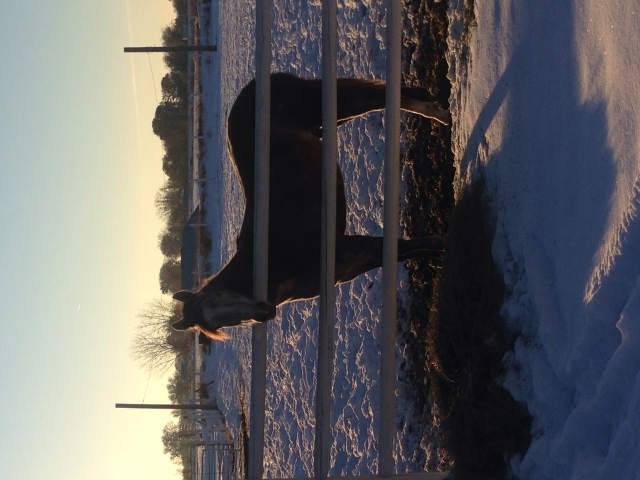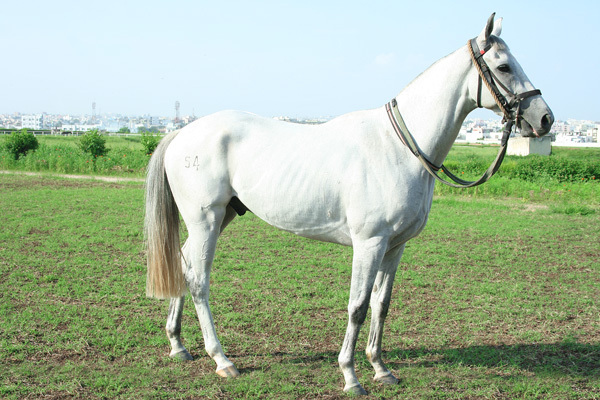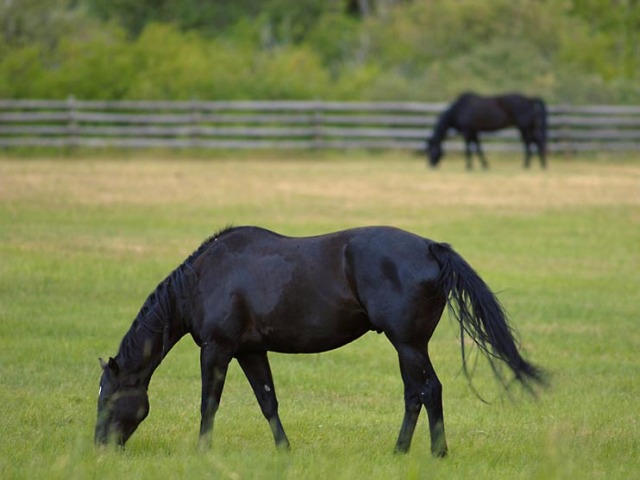QuestionQUESTION: My daughter-in-law acquired a gentle pony that didn't seem to have gagging, coughing, Allergy? problems until she lets him eat the mowed grass in her lawn. I just read where someone posted not to grain feed Shetland's. She is going to take the horse to the vet, but I wanted to see if there is a more natural solution to giving the pony relief. He's fine in the field. Just seems to be a connection with the fresh cut grass. Thanks for any help.
ANSWER: Hi Rhonda,
Thanks for your question. It is generally not recommended to feed lawn grass clippings to horses or ponies for a couple of reasons. The short length of cut and moisture of the grass clippings can cause problems with the horse swallowing them. The little pieces can be hard to form into a bolus that is easily swallowed, and so the pony may start coughing if the pieces become lodged in the esophagus. Remember, the muscles of the esophagus of a pony move only one direction so the pony is incapable of bringing anything back up. Also, fresh cut grass can ferment VERY quickly, forming mold that can have a negative impact at both the digestive and respiratory levels. And lastly, some species of grasses used to seed lawns (perennial ryegrass and turf type fescues in particular) are very susceptible to endophyte toxicity...which can create sever health problems for horses. Of these problems, I would guess that your daughter-in-laws pony is choking (coughing) on the small particles of grass. This would also explain why she can eat grass that she grazes herself without difficulty.
It is true that you must be careful in feeding grain to certain ponies, but if your pony's body condition is good then good quality hay/pasture and perhaps a mineral/vitamin supplement is all that your pony needs to eat. If she needs to gain weight, stay away from grains or complete feeds with a lot of starch. Stick to fiber based complete feeds.
I hope this helps, and best of luck with your new shetland pony...that's where I started.
Corlena
---------- FOLLOW-UP ----------
QUESTION: actually the pony has had this horrible cough since summer. we bought him in early spring with no cough. when summer arrived he developed this chronic cough. Other horsemen in the area said that it is probably a seasonal thing to wait it out...the only thing is when we try to ride him he has a coughing attack. He gets used very little until we discover the cause and a solution to his condition. I did some research with my mother-in-law Rhonda and she found that grain feeds could contribute to allergies. Please give us some advice if we can go a natural way. I know the vet will put us on meds and I would like another solution if there is one. thank you very much!!
AnswerHi Gina,
This does sound slightly different from the original scenario. I am often asked to work with horses that appear to be allergic to some feeds when in fact the horses are not allergic to the feed but rather are reacting to something in the feed. In all of the cases I have dealt with, the horses are reacting to mycotoxins found in the feed, most often from the grain but sometimes from forages. Why this looks like an allergic reaction is lengthy to explain. But I'm not convinced this is the case with your pony because those reactions manifest as digestive upsets and not often as coughs.
Usually horses and ponies develop chronic coughs from respiratory damage that has happened over time (COPD or the heaves), but the cough is usually worse when the horse/pony is on dry hay and in an enclosed area with poor air circulation. Breathing becomes easier for these horses when they are turned out and are eating fresh forages. There are, however, instances when horses/ponies have straight up airborne allergies (like people) that become worse as the horse is exposed to pollen from weeds. In such cases, vets generally recommend antihistamines or steroid shots to help improve breathing.
There are some natural alternatives that you could try if that's a route that you prefer to take. Bee Pollen is used for airborne allergies and Garlic Granules for general respiratory disorders. Grape seed extract is a wonderful natural antihistamine that I've used in horses with tremendous success. There is a Canadian company that produces an equine line of natural pure products, that I use above anyone else's because they are free from fillers. The company is called Basic Sports and Equine Nutrition and their online catalog gives wonderful explanations on the inclusion of each of their ingredients.
You can also select feed ingredients that help boost your pony's immune system thereby cutting down on the severity of the reaction. A Vitamin E/Selenium supplement will help strengthen the immune system and feeding a fat source high in Omega 3 fatty acids helps the horse's anti-inflammatory response. My favorite source of Omega 3's is straight milled flaxseed; it's not over-priced, it's palatable and it contains the correct Omega 6:Omega 3 fatty acid ratio for horses.
I hope this has helped some. If you choose any of these products and need suggestions on dosing levels, let me know...I'd be glad to help.
Corlena

 sehima nervosum hay for our horses - free choice
Question
sehima sehima 1
hi maam. present
sehima nervosum hay for our horses - free choice
Question
sehima sehima 1
hi maam. present
 Feed for Growing Quarter Horses
Question
Bree Della
Hi! I have a two year
Feed for Growing Quarter Horses
Question
Bree Della
Hi! I have a two year
 guessing the horse weight seeing it
Question
guess weight
hello maam. this is a thor
guessing the horse weight seeing it
Question
guess weight
hello maam. this is a thor
 position for feed box, water bucket in the stall
Question
position for feed box,
hello, where should the
position for feed box, water bucket in the stall
Question
position for feed box,
hello, where should the
 relaxing at poll
Questionrelaxing at poll
QUESTION: hello maam, d
relaxing at poll
Questionrelaxing at poll
QUESTION: hello maam, d